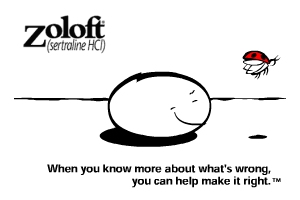I am beginning to understand the impulse behind the
Flagellants. At their height during the incidences of the Black Death in the Middle Ages (1348 ish), they wandered from town to town, whipping themselves because they believed that the plague was a punishment from God. They would often beat or even kill those who opposed them. And of course, in the process of traveling around the countryside, whipping themselves eagerly, they probably brought the disease with them.
So, why do I say that I understand the impulse that drove these people? Well, I’ve begun a sort of mental flagellation as I watch my students prepare for the AP exam. I’m reading through their essays right now (well, obviously not RIGHT now, as I am typing this instead of actually reading their essays), and feeling that given that the AP exam is
next week, and that we’ve been doing essays and talking about this content
all year long, these essays should be much better than they actually are. And yes, I am aware that the previous sentence was probably a run-on, thus the irony of me saying that my students wrote bad essays. I never said I was perfect. Plus, the essays these students are supposed to write aren’t really about grammar and good writing, but about knowing content and being able to express that knowledge and apply concepts in a written format.
Get to the point, I hear you cry. What on earth does all of this have to do with the Flagellants? Or are you just trying to impress us with your knowledge of history??
Well, yes. Of course. But I digress.
Where do the Flagellants come in? They come in because as I read these essays and watch my students take their practice AP test, the thoughts that are running through my head are:
“Have I done enough to help these students? Probably not. I didn’t spend enough time on [insert topic here], and it’s my fault they don’t understand how to answer this essay. I didn’t have enough time during the year and I was distracted by all the things we had to do to get this department and school up and running (‘We’re a work in progress!’), and so therefore I have done these students a disservice. It’s entirely my fault that they are not going to do well on this exam.”
Why is it that teachers take so much of the blame on themselves for something like this? Rationally, logically, reasonably, I know that I did a decent enough job teaching this content. Decent enough. That's the rub, isn't it? Is decent enough ... enough? I did not do as well teaching them this year as I did last year, for instance. Or, at least, according to my subjective view, I did a pretty darn good job teaching AP Psych last year. However, the scores show that my students didn’t do any better last year than the students the year before. I do feel that I definitely did a lot worse teaching them this year, though, and I worry very, very, very much about how they are going to do on this exam next week.
So again, I ask, why is it that we shoulder so much of the blame? There are so very many factors that impact how students do in my classroom that have nothing whatever to do with me or with what goes on in my classroom. Home life. Extra curricular activities. Geo-political events (ok, well, I don’t know how much that impacts my students, but it looked good). Individual students. The skills they had when they came to my classroom. All I can do is impact them in the 95 minutes I have them every other day.
So yet again, I ask, why do we blame ourselves so much? Why do we whip ourselves the way the flagellants whipped themselves? How do we stop blaming ourselves, and by doing so, will we become worse teachers, or will it not impact our instruction at all?
What do you think, dear reader?

